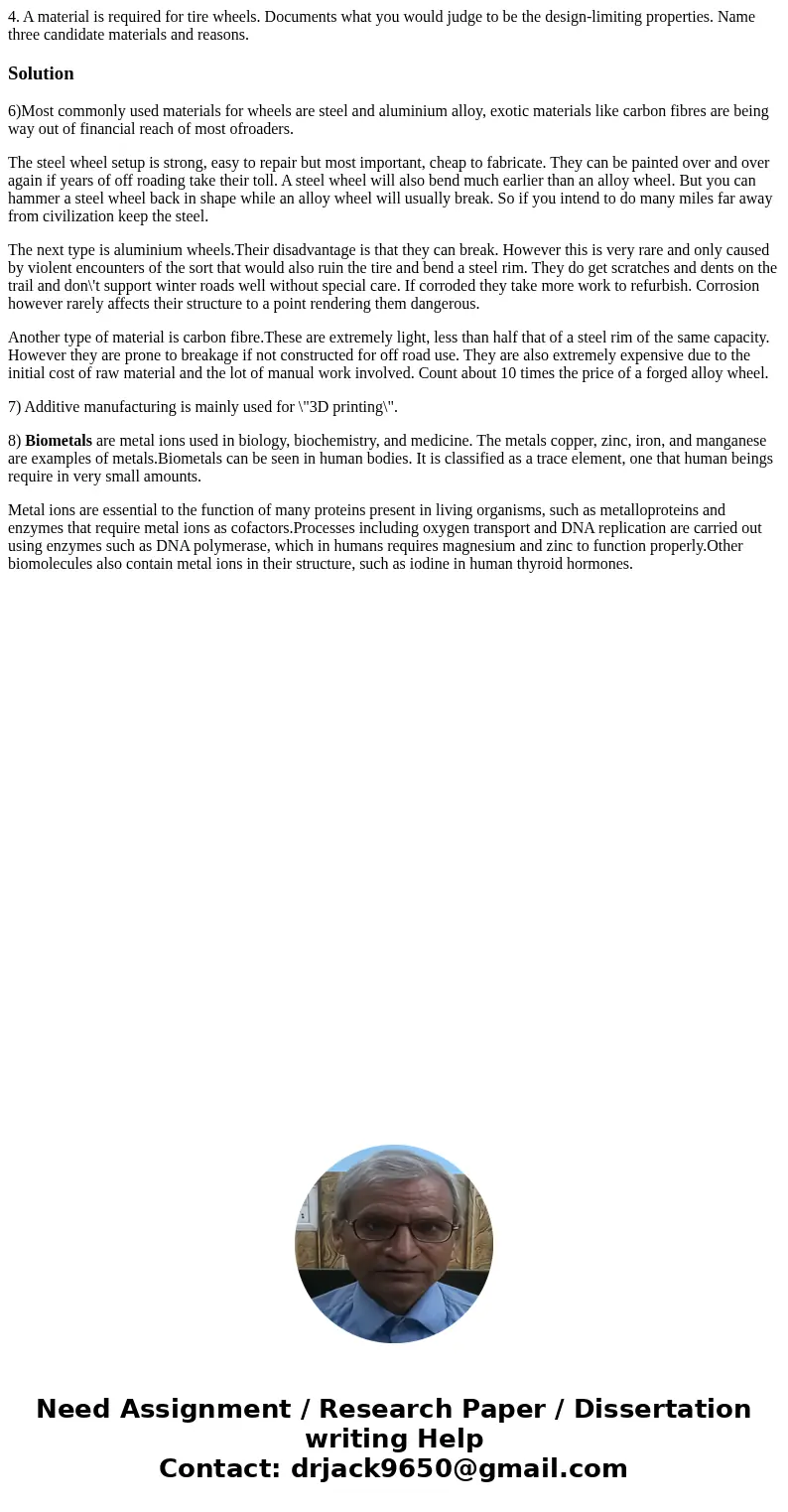4 A material is required for tire wheels Documents what you
Solution
6)Most commonly used materials for wheels are steel and aluminium alloy, exotic materials like carbon fibres are being way out of financial reach of most ofroaders.
The steel wheel setup is strong, easy to repair but most important, cheap to fabricate. They can be painted over and over again if years of off roading take their toll. A steel wheel will also bend much earlier than an alloy wheel. But you can hammer a steel wheel back in shape while an alloy wheel will usually break. So if you intend to do many miles far away from civilization keep the steel.
The next type is aluminium wheels.Their disadvantage is that they can break. However this is very rare and only caused by violent encounters of the sort that would also ruin the tire and bend a steel rim. They do get scratches and dents on the trail and don\'t support winter roads well without special care. If corroded they take more work to refurbish. Corrosion however rarely affects their structure to a point rendering them dangerous.
Another type of material is carbon fibre.These are extremely light, less than half that of a steel rim of the same capacity. However they are prone to breakage if not constructed for off road use. They are also extremely expensive due to the initial cost of raw material and the lot of manual work involved. Count about 10 times the price of a forged alloy wheel.
7) Additive manufacturing is mainly used for \"3D printing\".
8) Biometals are metal ions used in biology, biochemistry, and medicine. The metals copper, zinc, iron, and manganese are examples of metals.Biometals can be seen in human bodies. It is classified as a trace element, one that human beings require in very small amounts.
Metal ions are essential to the function of many proteins present in living organisms, such as metalloproteins and enzymes that require metal ions as cofactors.Processes including oxygen transport and DNA replication are carried out using enzymes such as DNA polymerase, which in humans requires magnesium and zinc to function properly.Other biomolecules also contain metal ions in their structure, such as iodine in human thyroid hormones.

 Homework Sourse
Homework Sourse